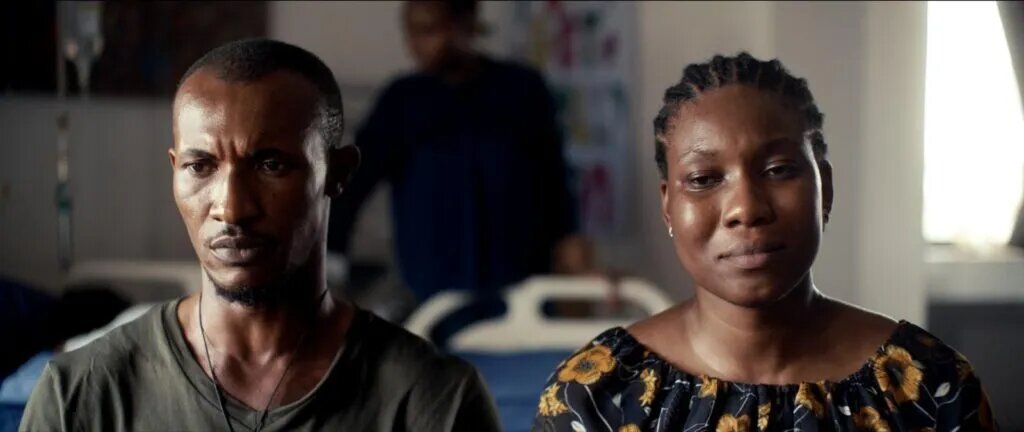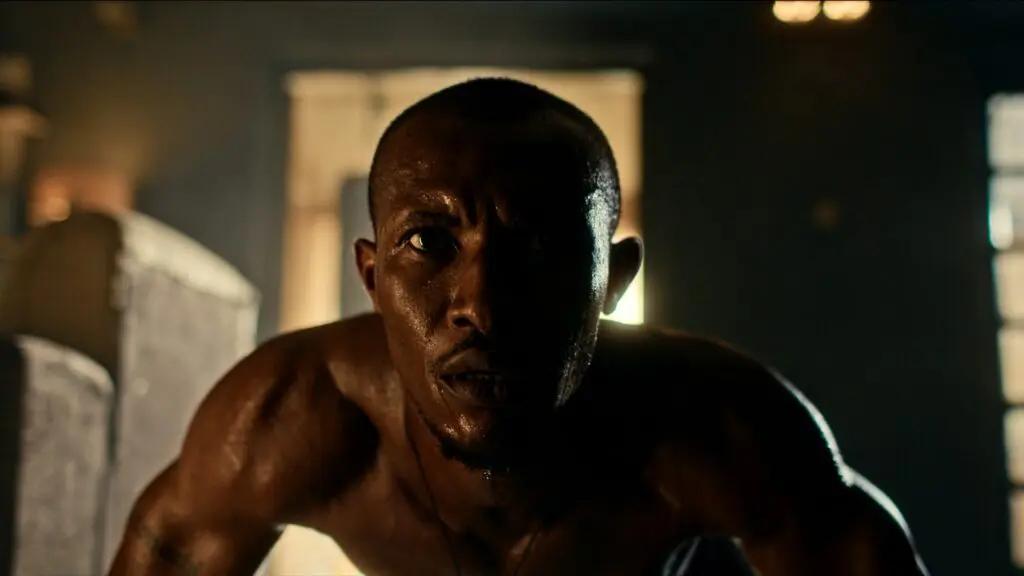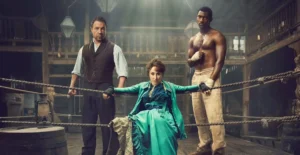Once it’s established that Tòkunbò’s baby son has died after not getting the treatment needed in time while in captivity with his mother, I was unsure of the point of the movie’s ending. He partook in the kidnapping plot in the first place because he needed the money for hospital bills.
The fact that his mission failed in that regard completely loosens the impact of Tokunbo‘s ending.
Tòkunbò’s Son Dying Changes The Story Completely
By the third act, Tòkunbò has bonded with the politician Folashade’s daughter, Nike. The Nigerian police have closed the borders in an effort to find her, but Tòkunbò, not knowing his family’s circumstances, tries to finish his mission, which is to deliver the child to their kidnapper as part of a plot orchestrated by Raymond and Aziba, who have betrayed the politician.
However, Tòkunbò learns from his partner, Lisa, that his son has passed away. The mission he was on suddenly became pointless, and feeling disillusioned, he ended up swerving his car over a bridge and into the water while the police chased him. Everyone fears the worst.
However, Tòkunbò and Nike survive, and the police do not find them in the water in time.
Afterward, Tòkunbò finds out that the crime lord, Gaza, is the kidnapper on behalf of the deputy bank governor Raymond. To protect the child, he asks Iya Muli to look after Nike.
It’s important to note that Tòkunbò did not want to work for Gaza. Based on reputation and history, he knew that working for the crime lord would result in his death. He learns that he was tricked into working with Gaza. It’s likely that if he knew Gaza was part of the kidnapping plot, he would not have gone along with it.
The Unnecessary Final Fight
Gaza is not amused that Tòkunbò failed to deliver the child. He claims his mission was easy, which does not make sense. He was moving through the city with the entire police force on the lookout for him and the child, and the borders were shut.
Gaza waterboards Tòkunbò and repeatedly asks for the whereabouts of the politician’s daughter, Nike. However, he refuses to give away any information. However, Iya Muli and Nike have been caught by Gaza’s men, meaning Tòkunbò no longer has any use.
And predictably, the villain decides an extreme punishment for his failure: death.
Tòkunbò is in survival mode at this point and instead teases Gaza’s ego and asks him for a fight.
I’m not entirely sure what the point of this was: OK, he slows Gaza down from killing him, but the fight was absurd and comically one-sided. Gaza beats him around like a doll. Plus, the choreography was amateur and staggered. If there was no competition, I was unsure why they put in five minutes of a presumed “final boss” fight. Thunder, lightning, and rain pouring down do not make a great scene by default.
And even when Tòkunbò gets Gaza in a headlock and tries to choke him to death, he fails. Iya Muli has to finish the job and shoot Gaza dead.
All in all, this constitutes a questionable ending.
By this point in the movie, the police have figured out that Raymond and Aziba were participating in the kidnapping plot. We can assume that they were uniquely against the monetary policies that Folashade was putting forward, so they attempted to strongarm her by kidnapping her daughter and blackmailing her. Aziba also had a romantic relationship with Raymond. The motive was there, especially with Raymond’s connection with the central bank.

Tòkunbò and his wife Lisa (Credit – Netflix)
Why the Ending Doesn’t Add Up
But the ending of Tòkunbò is even more bizarre. Tòkunbò becomes the chauffeur of Folashade and her daughter, Nike. They had a good word with the police and explained his circumstances, and he was freed on bail, and all charges were dropped.
Why? I have no idea. We can only assume that Folashade and Nike saw the good in him. But he still kidnapped Nike and put her in danger. Even if he was a good man, he committed a serious crime.
The ending also confirms he is Folashade and Nike’s personal bodyguard. How? He clearly cannot fight or protect. The final boss fight was a clear example that there was little substance to this man at all.
Also, there’s no emotion by Tòkunbò over the death of his son. I know he did not care when he was born, but that looked more childish than his actual feelings as a father.
The ending is, for the most part, absolute nonsense and completely supports my point that Tòkunbò is not a great movie by any stretch of the imagination.




